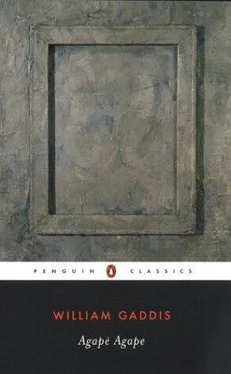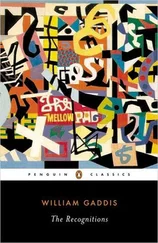“I subscribe to a high ideal,” he tells Reverend Oskar Pfister “from which most of the human beings I have come across depart most lamentably.” And then just to make clear what little he’s found that’s good about these human beings, he tells Reverend Oskar Pfister “In my experience most of them are trash,” probably lost sight of their purposes never had any in the first place but pleasure and along comes Bentham with “Pushpin is as good as poetry if the quantity of pleasure given is the same” see that word quantity? The quantity of pleasure not the quality the whole point of it and these digital machines come in, the all-or-none machine Norbert Wiener called it, machine that counts brings in the binary system and the computer with it, so Wiener tells us about a brilliant American engineer who’s gone out and bought an expensive player piano. Pushpin or Pushkin, doesn’t care a damn for the music but he’s fascinated by the complicated mechanism that produces it that’s what America was all about, what mechanization was all about, what democracy was all about and the deification of democracy a hundred years ago all this technology at the service of entertaining Sigi’s stupefied pleasure seeking trash out there playing the piano with its feet where it all came from isn’t it? That all-or-none paper roll with holes in it, 40,000 player pianos built in 1909, almost 200,000 ten years later if ever the daughters of music were brought low I mean that’s what I’m trying to explain, dividing the properties three ways one for each daughter all settled ahead of time before the lawyers and taxes swallow it up in dislocation and disorder getting it organized the only way to defend it against this tide of entropy that’s spread everywhere since the year the player piano came into being from some Civil War battlefield like Christ, its American inventor said, and its own received it not since Willard Gibbs showed us the tendency for entropy to increase, nature’s tendency to degrade the organized and destroy the meaningful when he pulled the rug out from under Newton’s compact tightly organized universe with his papers on statistical physics in 1876, laid the way for this contingent universe where order is the least probable and chaos the most introducing probability and chance convinced Wiener it was not Einstein or Planck or Heisenberg but Willard Gibbs who brought on the first great revolution in twentieth century physics but that’s not what I’m talking about is it, that’s not what I’m trying to explain, no. No where did the, in a folder in this heap somewhere on the theory of wait wait wait, good God the whole pile spilling never get it together again I’d be, I’d be finished, lungs are gone and what’s happening down below is nobody’s business, metastasized into the bone why I haven’t a day to waste, get the properties settled on all three of them with all the headaches that go with it and I’ll stay with them by turns, four months with each daughter working on this project because I’ve got to get a contract and some advance money so I can finish it before I, before the, you see what I mean, before what it’s about, before it all turns into what it’s about. Where is it, this swamp of ambiguity, paradox, anarchy they’re calling aporia his book right here somewhere probably at the bottom of the pile it was a game they played, the Greeks, a game you couldn’t win, nobody could win, a parlour game proposing questions there was no clear answer to so winning wasn’t the point of it no, no that’s ours isn’t it, right on the money because that’s what the game is, the only game in town because that’s what America’s wait, little card there falling on the, there! You see? Whole stack of papers here organizing my research here it is, what I was looking for exactly what I’m talking about, 1927, getting the whole chronology in order 1876 to 1929 when the player piano world and everything else collapsed, the first public demonstration of television the image of the dollar sign was projected for sixty seconds by Philo T Farnsworth in 1927, see how I’ve got everything organized here put my finger right on it? Coming events cast their shadows and all the rest of it for Sigi’s stupefied trash out there gaping at television dollar sign’s all they see where we are today aren’t we? Waiting to be entertained because that’s where it started and that’s where it ends up, avoiding pain and seeking pleasure play the piano with your feet, play cards, play pool play pushpin here it is, here’s Huizinga talking about music and play he quotes Plato yes, here. “That which has neither utility nor truth nor likeness nor yet, in its effects, is harmful, can best be judged by the criterion of the charm that is in it, and by the pleasure it affords. Such pleasure, entailing as it does no appreciable good or ill, is play,” goes on about little children and animals can’t keep still, always moving making noise playing skipping leaping making a racket ends up where it started with toys, toys, toys, every four year old with a computer. Press buttons it lights up different colours he’s supposed to be learning what, how to spell? No, it corrects his spelling doesn’t need to know how to spell, how to multiply divide get the square root of God knows what don’t have to read music know a cleft from a G string just keep pumping because that’s where it came from like Wiener’s engineer, not the music but how it’s made, tubes bellows hammers the whole digital machine, whole binary system that all-or-none paper roll with the holes in it running over the tracker bar that’s where all of it came from, toys and entertainment where technology comes from going back, back, back to Vaucanson’s duck that ruffled its feathers and quacked waddled and shat, back a thousand, two thousand years with the penny-in-the-slot machines and water organs Hero of Alexandria made to entertain the locals and the living statues on the island of Rhodes Pindar talks about, the artificial trees and singing birds made for the Emperor of Byzantium a thousand years ago nothing but toys and games wherever you went, Charles V’s armed puppets playing trumpets and drums and a lifesize singing canary made for Marie Antoinette made it pretty clear who this frivolous entertainment was for, artificial birds singing real birdsongs to teach birds how to sing? Mozart writing music for fluteplaying clocks and Beethoven’s Wellington’s Victory written for Maelzel’s panharmonicon while those rococo Swiss watchmakers were still busy making princely gifts of musical snuff boxes and pastorals featuring tiny figures doing farm chores and the French libeled as usual for smutty versions available across the way where Vaucanson’s foul duck and his shepherd boy played twenty songs on a pipe with one hand and beat a drum with the other and his flutist, good God Vaucanson’s flutist! actually played the flute? Because that’s where it came from, where the technology came from right down to that paper roll with the holes in it where the computer came from, you see? Just take a minute to explain all this computer madness besotted by science besotted by technology by this explosion of progress and the information revolution what we’re really besotted by is people making millions, making billions from computer chips computer circuitry computer programs one man making thirty billion dollars in a year because that’s what we’ve always been besotted by, Philo T Farnsworth had it right seventy years ago didn’t he? What America’s all about, what it’s always been about that thirty billion dollars? What the computer’s all about what all of it’s all about, movie stars, ball players, what science is all about, try to pin it on some humble genius so Pascal shows up age nineteen with his digital adding machine, Leibniz with one that multiplies and divides and finally Babbage and his Difference Engine, Babbage and his Analytical Engine with its punched cards Babbage the grandfather of the modern computer so it’s Babbage Babbage Babbage but he got his idea from Jacquard’s loom so that’s all you ever hear, Jacquard’s loom Jacquard’s loom Jacquard’s loom hits you square in the belly no where did I, can’t believe it I just saw it here Flaubert, Flaubert must have been alphabetic with Farnsworth everything organized here it is yes here it is, letter from Flaubert 1868 asks about the silk weavers in Lyons, work in low-ceilinged rooms? in their homes? children work too? “The weaver working at a Jacquard loom” he says he’s heard “is continually struck in the stomach by the shaft of the roller on which the cloth is being wound, it is the roller itself that strikes him?” There, you see? That was the factory Vaucanson had set up near Lyons that fell into disrepair and Jacquard shows up later, picks up the pieces of Vaucanson’s mechanical loom for figured silks, glues the pieces together and we’ve got Jacquard’s loom but that’s not what I’m talking about, no, no it’s the principle of the thing, eighty years before Babbage, it’s the same principle Vaucanson used for his flutist, this drum pierced with holes and levers controlling its fingers and lip and tongue movements the air supply driven through the lips against the edge of the holes in the flute it was actually playing the notes selected by the holes in the drum, the notes selected by the holes in that roll of paper because the piano was the epidemic, it was the plague spreading across America a hundred years ago with its punched paper roll at the heart of the whole thing, of the frenzy of invention and mechanization and democracy and how to have art without the artist and automation, cybernetics you can see where the, damn! Where the tissues, just get cold water on it stop the bleeding, you see? Scrape my wrist against this drawer corner tears the skin open blood all over the place it doesn’t hurt no, skin’s like parchment that’s the prednisone, turns the skin into dry old parchment tear it open with a feather that’s the prednisone, reach for a book reach for anything tear myself to pieces reaching for this book listen, you’ll see what I mean, opening page you’ll see what I mean, “From March to December” he says, “while I was having to take large quantities of prednisolone,” same thing as prednisone, “I assembled every possible book and article written by” you see what I mean? “and visited every possible and impossible library” this whole pile of books and papers here? “preparing myself with the most passionate seriousness for the task, which I had been dreading throughout the preceding winter, of writing” where am I here, yes, “a major work of impeccable scholarship.
Читать дальше












